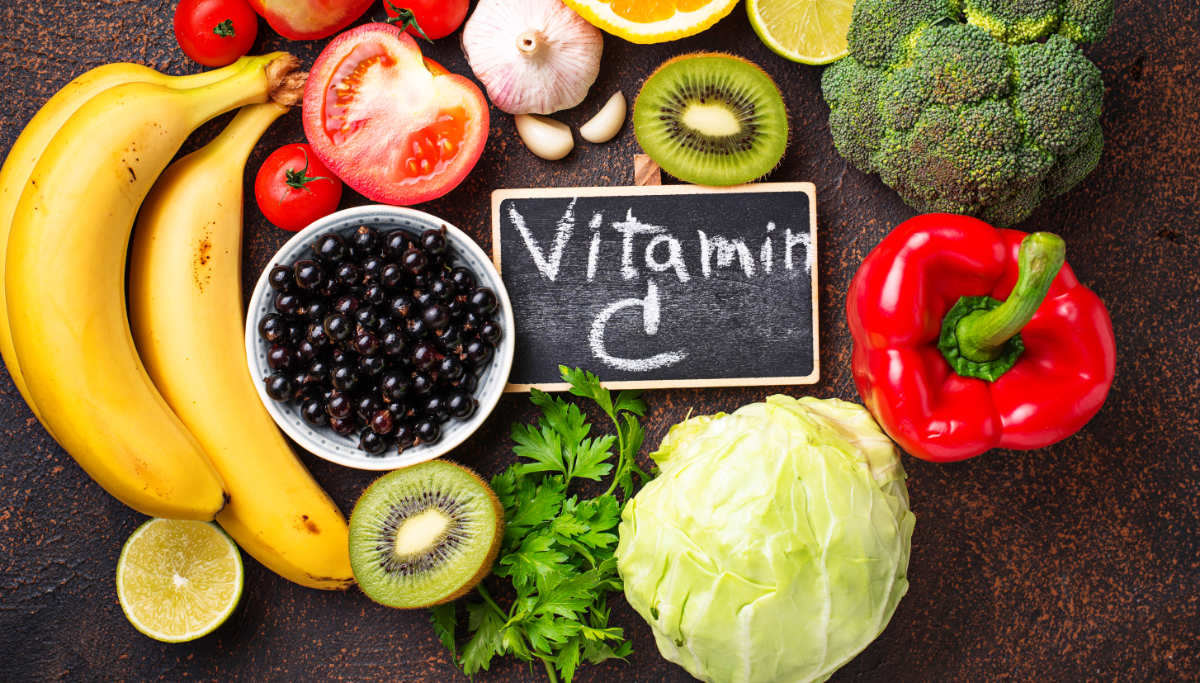There are a surprising number of vitamin C sources for immune support – beyond oranges – but deciding where to get vitamin C naturally can be a challenge.
With lockdown a good opportunity to rethink your unhealthy habits, rather than focusing on shedding the pounds, going on a spring health kick should be about feeling great, having more energy and supporting your immune system through the worries of this time.
What is vitamin C?
Vitamin C, or ascorbic acid, is one of the most important vitamins for overall health. Not only does it support your joints and help repair connective tissues, but it’s also useful in boosting the immune system.

This super vitamin is known to stimulate the production and function of white blood cells, and it also acts as a powerful antioxidant and protects the body from damage caused by free radicals. Studies have shown that it can help to reduce inflammation in the body, as well as fight fatigue.
Does vitamin C protect against viruses?
And studies have found that, although vitamin C doesn’t appear to make you any less likely to catch a cold, it may help you get over one faster and make the symptoms less severe.
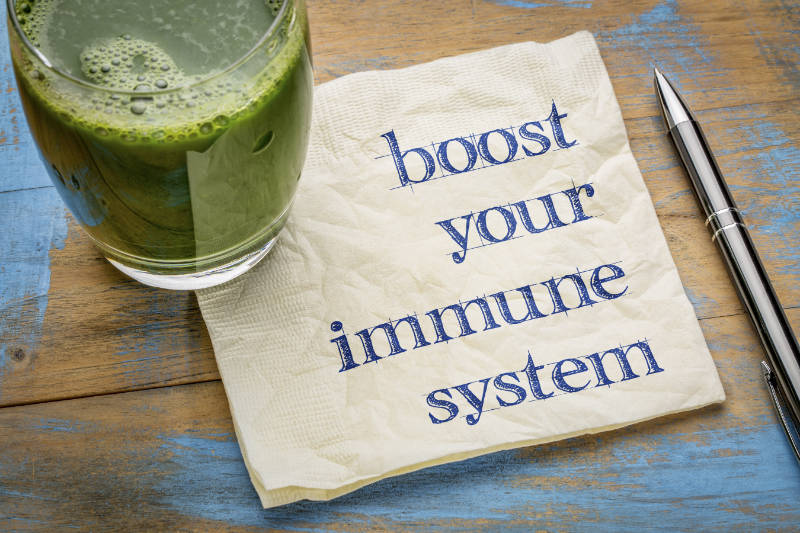
Despite recent, widely-shared online posts about the supposed ‘miracle’ wonders of vitamin C in high doses, there is no conclusive evidence to suggest that this vitamin – or any other supplement – can prevent or treat Covid-19.
Recommended: Coronavirus and vitamin C – 6 reasons to regularly take vitamin C.
Indeed, the NHS website warns that taking large amounts of vitamin C (more than 1,000mg per day) can cause stomach pain, diarrhoea and flatulence.
But it’s always a sensible idea to follow government guidelines and get your recommended daily intake, to keep your immune system in good nick.
How much vitamin C do we actually need?
“The recommended amount of vitamin C is 40mg a day for adults aged 19-64 years – equivalent to about an orange a day,” says Aisling Moran, nutritional scientist at Thriva (thriva.co).
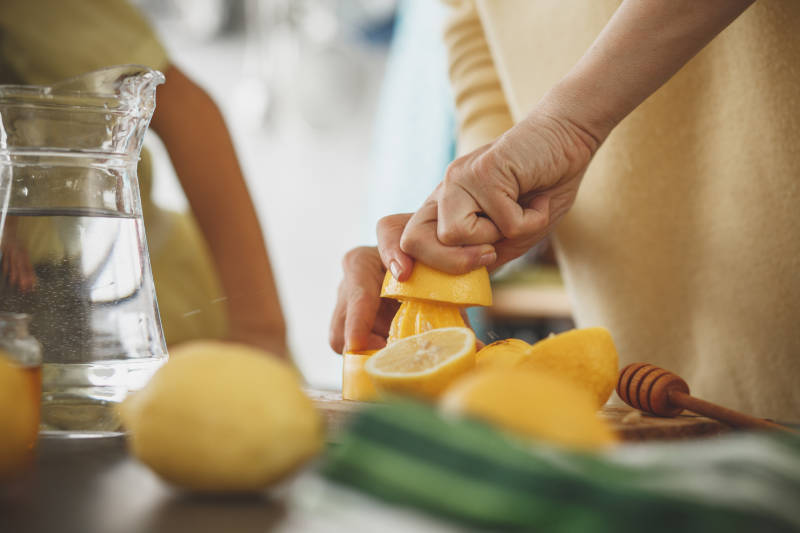
Severe lack of vitamin C can cause scurvy, a disease that causes swollen gums and bleeding from the skin.
Scurvy is rare in the UK, although the NHS says that people on restrictive fad diets, with very few vitamin C sources, are at higher risk of the health issue. Smoking can also reduce how much vitamin C your body absorbs from food.
Where to get vitamin C naturally
The NHS says that it should be possible to get all the vitamin C you need from a balanced diet, although very little of the nutrient is stored in the body, so you need to be consuming it each day.
When we think of vitamin C-rich foods, we often think of oranges – an average-sized one will yield around 70mg of the vitamin, with a small one offering around 51mg.
But it’s a good idea to keep your diet varied and luckily the vitamin is found in plentiful amounts in many other common fruits and veggies too.
Three ways to get vitamin C naturally
Here are a few other fridge and fruit bowl staples to keep in mind on your next trip to the supermarket. And each of them contains more vitamin C per 100g than oranges.
1. Broccoli
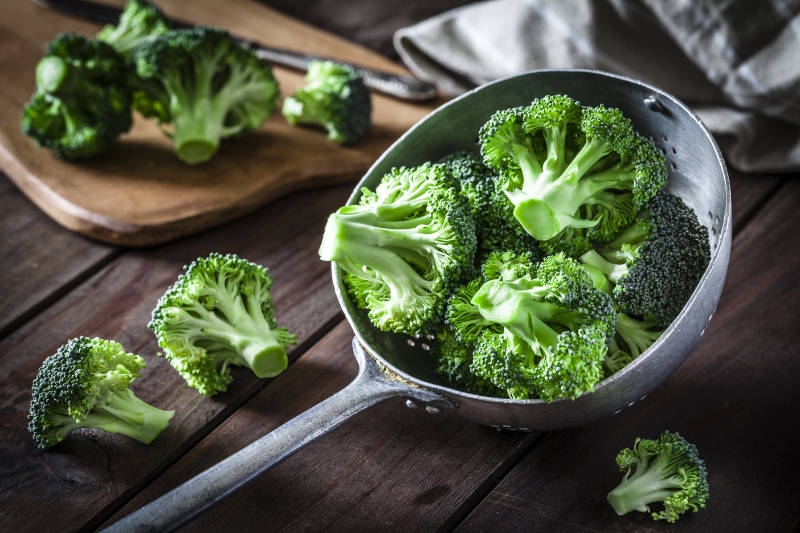
This fibrous, branched staple of the Sunday roast dinner doesn’t just taste great, it’s also a nutrient-rich powerhouse in the cruciferous vegetable family. While 100g of oranges contain roughly 53mg of vitamin C, the same weight of broccoli yields around 89mg.
As well as being a great pairing with your roast lamb, broccoli is perfect for a quick stir fry with other vegetables. “I recommend including mange tout, baby sweetcorn, thinly sliced courgettes and button mushrooms,” says Dr Emma Derbyshire, nutritionist for the Health & Food Supplements Information Service (HSIS.org). “When it comes to a healthy diet, think about cooking a rainbow.”
2. Red pepper
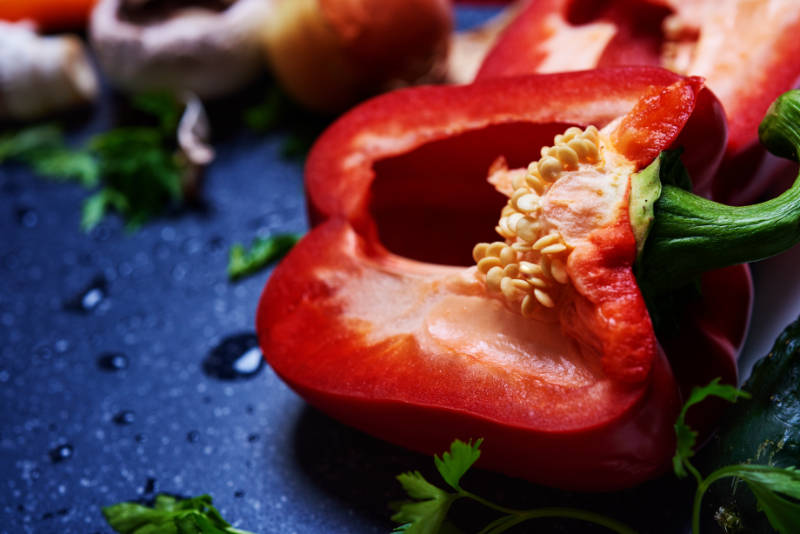
Red pepper offers around 128mg of vitamin C per 100g, which is pretty impressive – and this fabulous fruit is also a great source of vitamins A, E and K, which support eye, nerve and bone health respectively.
“Red peppers are great in stir fries, but I also like to cook them as part of a roast vegetable mix,” Derbyshire recommends. “Try chopping them up and roasting them in the oven with butternut squash and red onion. They’re also super tasty when stuffed with a herby breadcrumb mix and baked in the oven.”
3. Kiwi fruit
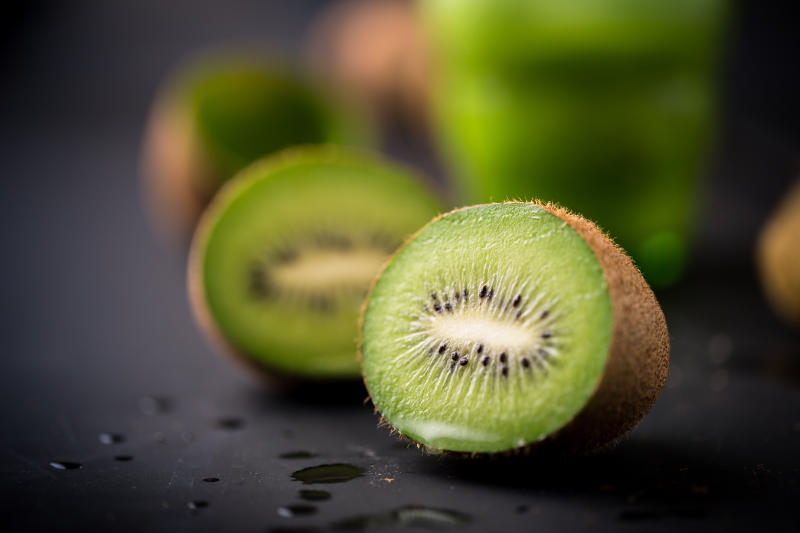
The tangy and flavourful kiwi fruit isn’t to everyone’s taste, but if you’re a fan, there’s a good reason to keep adding these juicy green spheres into your fruit salads.
In 100g of kiwi, you’ll find around 93mg of vitamin C, and eating just one of these little beauties delivers around 64mg. They offer vitamin K, vitamin E, folate, and potassium too, and also contain a good amount of disease-fighting antioxidants.
“If you’re getting bored of just eating kiwi fruit straight out of its skin, try putting it in a smoothie. Blend together either milk or a plant-based alternative, with a satsuma, banana, a spoonful of live yoghurt (which is a probiotic) and a teaspoon of cinnamon for extra sweetness,” suggests Derbyshire.
Let’s face it though, even during the lockdown, we’re all busy people and it’s not always easy to plan out your meals if you are waiting for a food delivery. If you feel your diet isn’t quite cutting it, try Holland and Barrett vitamin C with wild rose hips tablets (£10.99 for 100 capsules, hollandandbarret.com) for an extra springtime boost.























































